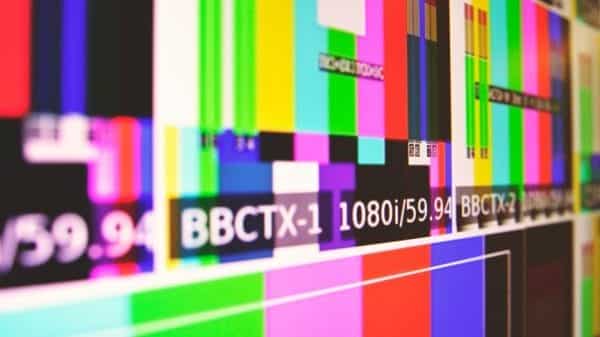According to the US census, 44 percent of adults have at least one tattoo and with each generation, this number only grows. While it’s not hard to understand why more and more people are choosing to embellish themselves with meaningful designs, it is curious that tattoos are still a red flag for some employers when they have no bearing on a person’s professional abilities.
Persisting Stereotypes
Despite their ridiculousness, we all know the stereotypes that haunt tatted individuals. In her TED Talk, tattoo enthusiast Amanda Leu calls out some of the main ones:
“Unemployable, regrettable, irresponsible, uneducated, unprofessional”
The types of questions that tattooed people are asked regularly—“Is that permanent?” or “Did you get that while you were drunk?”—show the pervasiveness of these stereotypes. Aside from being annoying or hurtful, these unfounded judgments can have real consequences for people.
In an interview, tattoo collector Brianna Wyble reveals that when she used to work for a corporate company she was fired by her new manager because of her tattoos despite being the top-performing customer service representative. Similarly, Amanda Mayros says that her employers at Wells Fargo hate her tattoos because “people don’t want somebody like that dealing with their money”.
Luckily, attitudes and dress code policies vary considerably from company to company and so having visible ink probably won’t prevent you from working in your preferred industry. Brandon Moran, who also works in the banking sector, has never had a problem with his tats. In fact, he believes that the high standard of work he delivers is helping to dismantle enduring preconceptions towards people like him.
Of course, some industries are generally more tattoo-friendly than others. While pro athletes are “celebrated for having visible tattoos, with 86 percent of the public accepting visible tattoos on athletes”, judges and legal professionals are severely criticized for the same thing, “with only a 38 percent approval rating for those with visible tattoos”. This distinction reflects the preposterous belief that inked individuals can’t be trusted to do “serious” jobs.
It is also important to be aware of the intersectional discrimination that can take place in this context. As explained by American writer Bryan Washington:
“If you are white, tattoos lead to the presumption of military service, a culinary background, some nod at self-expression or a “rebellious” phase. If you aren’t white, then you’re immediately, until proven otherwise, trapping or banging or otherwise dubiously affiliated.”
Studies show that women with visible tattoos are also “judged more harshly than their male counterparts”, which isn’t new. In ancient Egypt, researchers mistakenly believed that tattoos were used to mark “prostitutes, lower-class citizens, dancing girls” simply because the first tattooed mummies they found were female. Shortly afterward, they realized that people from all walks of life, including royalty, boast these permanent symbols.

More Than Body Modification
Leu insists that tattoo discrimination continues today because our society “fails to see tattoos as anything more than simple body modification”. The solution, therefore, lies in reminding people of their true meaning.
Throughout history, body art has been used by many different cultures as an invaluable form of visual communication. In ancient Polynesian society, for example, there was no official writing system and so people used tattoos to communicate important information about their identity. Family members even sported similar tattoos to show their connection, rather than using surnames.
Naturally, the sailors and soldiers who witnessed these beautiful traditions were inspired to get their own tattoos when they returned to the United States. Though tattoo popularity soared, somewhere along the way they picked up the negative stigma that we see today.
Casual reminder:
— Conner Anderson (@ConnerA91) August 20, 2020
Having visible tattoos isn’t unprofessional and forcing people in healthcare to cover them is called discrimination.
My tattoos have no relevance in regards to my professional career.
2 Bachelor’s degrees, 3 EMS board certifications and a 514 MCAT do though.
Some people argue that because tattoos are a personal choice in our culture they should be categorized as unprofessional, much like “wearing jeans and flip-flops to work in an office” would be. However, those of us that appreciate tattoos can see that they are more akin to scars:
“Scars are permanent and reveal part of a person’s life or background, just like a tattoo. Furthermore, scars can’t be removed and are just a part of your being.”
Saved Tattoo
We may choose to get tattoos but after the fact, they are not only a part of our bodies but an important part of who we are. No matter what tattoo someone decides to get or why, the very act of getting something permanently imprinted on our skin carries value. We would never tolerate workplace discrimination based on any other aspect of someone’s appearance or identity, so why is it different when it comes to tattoos?
Do Employers Ever Have a Valid Reason?
Workopolis asked over 300 employers how tattoos would affect their decision to hire or not hire someone.
“Fourteen percent said they would be less likely to hire someone with tattoos, 23% said it would not affect their decision, and the rest said it would depend on the number and location of the tattoos and/or the role being filled.”
It probably won’t surprise you that face, neck, and hand tattoos are the biggest red flags for employers—28 percent said they would not hire someone with these tattoos—given their high visibility. Of course, if someone has an offensive or disturbing design on display, that’s a good reason not to hire them but for those of us with perfectly innocent ink, why is it a problem?
In researching this topic, I’ve only come across a few industry-specific reasons that actually make sense. In the food industry, for example, fresh tattoos are typically seen as open wounds for the first 2-6 months and therefore, pose a concern for health and safety. Employers in other industries, even if they don’t mind tattoos personally, might worry that their elderly and conservative customers will be put off by them. With that being said, a lot of people will lay their prejudices aside after an employee proves their reliability, as Patrick Tran has observed in working with older adults.
According to Saved Tattoo, some bosses might claim that your tattoos will be a distraction for other workers or the people around you, while others are simply concerned about maintaining their company’s “brand image”. These are weak reasons, however, which usually boil down to a personal dislike for tattoos. If you’re a tattoo enthusiast you might not want to work at a place that needlessly limits self-expression anyway!

Given the variability in company tattoo policies, you might be at a loss for what to do if you’re inked or planning to get inked. To begin with, you can ask yourself what you value most. Although it’s not okay for an employer to discriminate against you based on your tattoos, if you dream of working in the medical field, for example, having visible tats might not be worth risking your career over. On the other hand, if earning money and/or freely showing your tattoos is more important to you than where you work, by all means, keep flaunting your ink. The good news is that this art form is becoming more normalized every day, meaning that eventually we probably won’t even have to weigh these priorities!
To find out what else you should be considering before getting inked, click here.













